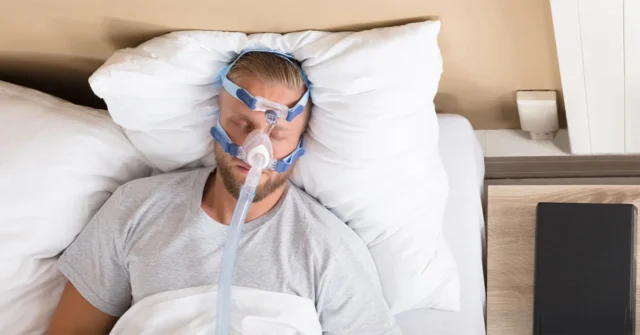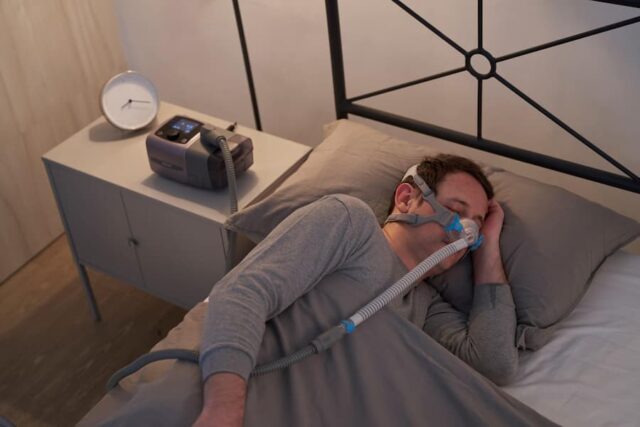
Oxygen, the life-sustaining element, plays a pivotal role in our overall health and well-being. Every cell in our body relies on it to function optimally. But did you know that maintaining adequate oxygen levels during sleep is just as crucial as when we’re awake? This blog post will delve into the significance of oxygen during our nightly rest and introduce natural methods to ensure you’re breathing easy and sleeping soundly.
The Role of Oxygen in Sleep

While we drift into dreamland, our body doesn’t stop working. It uses this time to repair, regenerate, and restore. Oxygen aids in these processes, supporting various bodily functions from cellular repair to brain activity. Sleep quality is intrinsically linked to oxygen levels. When we achieve optimal oxygenation, our sleep cycles are uninterrupted, leading to a deeper, more restorative sleep. On the flip side, inadequate oxygen can disrupt these cycles, causing us to wake up feeling groggy and unrested.
Consequences of Low Oxygen Levels During Sleep
Consistently low oxygen levels during sleep can have dire consequences. It can lead to conditions like sleep apnea, where breathing repeatedly stops and starts. Over time, this can result in cardiovascular issues, high blood pressure, diabetes, and even cognitive impairments. Furthermore, it can exacerbate existing health conditions and reduce our body’s ability to heal and recover. Addressing this issue is not just about better sleep; it’s about better overall health. To learn more about this subject you can always search for more info and educate yourself further.
Proper Sleep Environment

A well-ventilated bedroom is the first step towards ensuring optimal oxygen levels. Fresh air circulation is vital. Ensure windows are open, even if just slightly, to allow stale air out and fresh air in. If safety or environmental factors are a concern, consider installing trickle vents. Plants like the Snake Plant can also improve indoor air quality by releasing oxygen at night.
Humidity Control
Humidity, often overlooked, plays an indispensable role in determining the quality of air we breathe. Its subtle yet significant influence on oxygen availability is noteworthy. In environments where the air is excessively dry, our respiratory tracts can become irritated, leading to inflammation. This irritation can hinder the smooth intake of oxygen. On the other hand, high humidity levels can be a breeding ground for mold and mildew, which degrade air quality and can lead to respiratory issues. For optimal health and comfort, it’s recommended to maintain indoor humidity levels between 40-60%. Devices like humidifiers can add moisture to dry air, while dehumidifiers can reduce excessive moisture, helping strike the right balance.
Air Purification
In today’s urbanized world, air purifiers have become almost essential, especially for those residing in areas with high pollution levels. These devices work tirelessly to filter out a myriad of pollutants, allergens, and harmful toxins, ensuring that every breath you take is as pure as nature intended. For those particularly keen on enhancing oxygen levels and ensuring the cleanest air possible, investing in purifiers equipped with activated carbon filters and HEPA filters is a wise choice. These filters are adept at trapping even the tiniest of harmful particles, offering you the best air quality.
Positional Tips for Better Breathing

The way you position yourself during sleep has a profound effect on your breathing patterns. While many find comfort sleeping on their backs, this position can sometimes lead to restricted airways, especially in those prone to snoring or sleep apnea. For a significant number of people, side sleeping, particularly on the left side, has been found to promote better oxygen intake and reduce airway obstructions. To maximize the benefits of your chosen sleeping position, it’s essential to use a pillow that offers adequate support to your neck and head, ensuring unobstructed airflow.
Breathing Exercises for Better Sleep
Breathing exercises, often associated with meditation and yoga, offer a holistic approach to improving oxygen intake. One popular technique is the ‘4-7-8’ method. Here, you’re required to inhale deeply for 4 seconds, hold that breath for 7 seconds, and then exhale slowly over 8 seconds. This controlled breathing not only increases oxygen intake but also calms the mind, preparing it for a restful sleep. Regular practice of such exercises can significantly improve lung capacity, ensuring you get the most out of every breath.
Benefits of Nasal Breathing
Choosing to breathe through the nose rather than the mouth comes with a plethora of benefits. The nasal passage acts as a natural filter, trapping dust and pollutants. It also humidifies the air, making it easier on the lungs. Additionally, nasal breathing aids in the production of nitric oxide, a compound that acts as a vasodilator, enhancing oxygen circulation in the blood. For those who tend to breathe through their mouths during sleep, nasal strips can be beneficial. Alternatively, practicing mindful breathing techniques during the day can set a pattern for nighttime.
Diet and Hydration for Improved Oxygenation

Our dietary choices have a more profound impact on our health than we often realize. Consuming foods rich in antioxidants, such as berries, nuts, and leafy greens like spinach, can significantly boost blood oxygenation. Alongside a balanced diet, maintaining proper hydration is paramount. Water plays a crucial role in various bodily functions, including aiding the efficient transportation of oxygen to cells. To ensure optimal oxygenation, make it a habit to consume adequate water throughout the day.
Regular Physical Activity
While exercise is synonymous with increased energy and vitality during waking hours, its benefits extend into the night. Engaging in regular physical activity, be it intense workouts or milder forms like walking or yoga, can amplify lung capacity. This enhancement means more oxygen is taken in with each breath, which is especially beneficial during sleep. Furthermore, exercise promotes better blood circulation, ensuring oxygen-rich blood reaches every cell efficiently.
Seeking Professional Help
While natural methods can significantly improve sleep quality and oxygenation, there are instances where professional intervention becomes necessary. If you’ve experimented with various techniques and still encounter persistent sleep-related breathing issues, it’s imperative to consult a healthcare expert. Conditions like sleep apnea might necessitate medical solutions, such as the use of CPAP machines or, in extreme cases, surgical procedures. Prioritizing sleep quality is a step towards safeguarding your holistic health and well-being.













